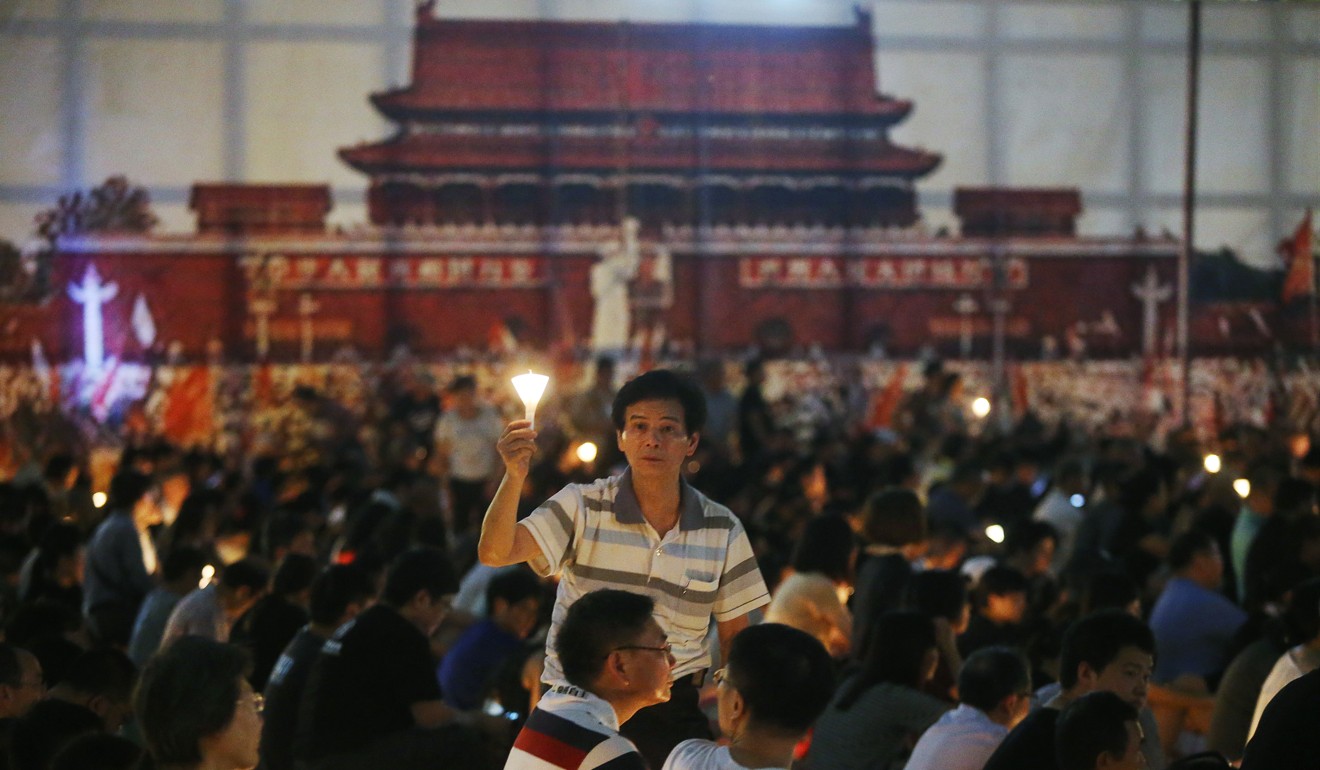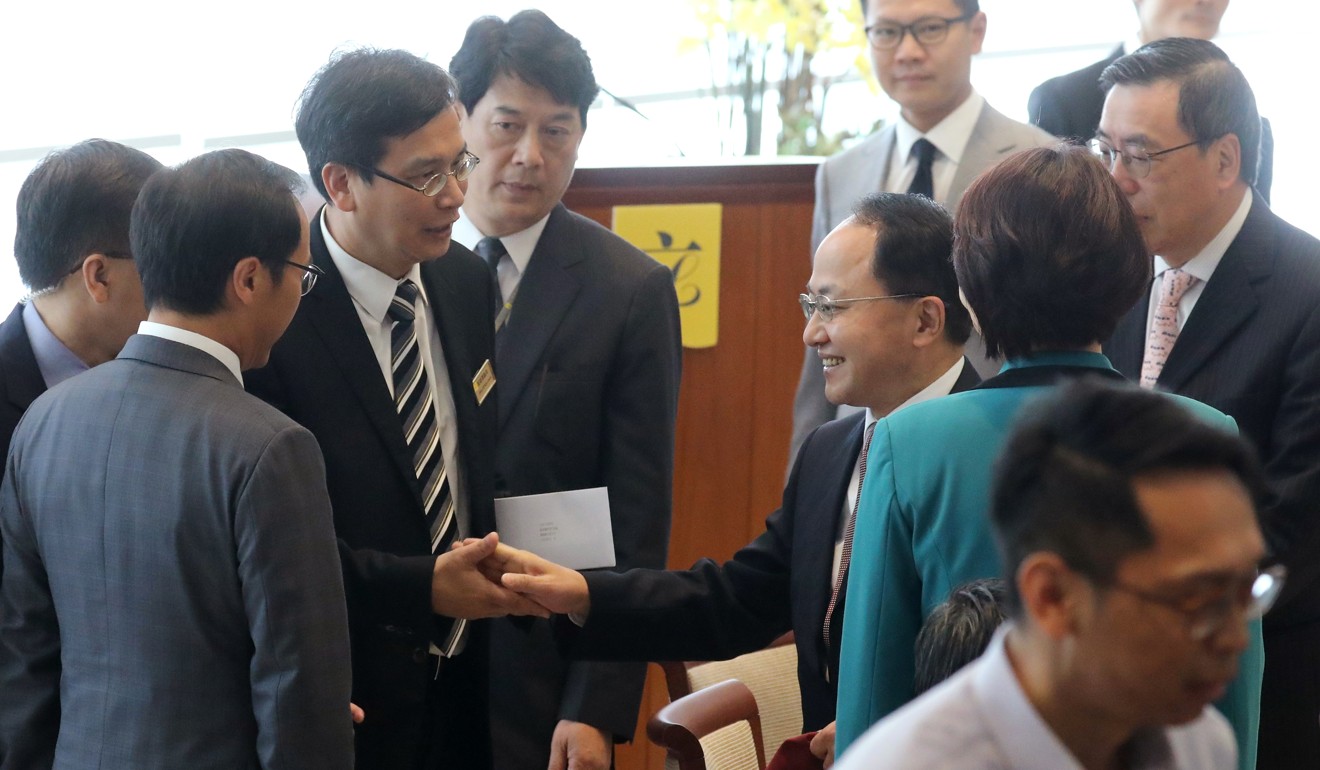
Albert Ho says surprising praise from liaison office chief is a ‘strategy’ to isolate separatists
Albert Ho responds to Wang Zhimin’s unexpected remarks, made during a visit to the city’s legislature
Democrat Albert Ho Chun-yan is probably among those who have chanted “end one-party dictatorship” the most over the past few decades, so eyebrows were raised when Beijing’s top official in Hong Kong praised him and other pro-democracy figures as defenders of the nation’s dignity on Monday.
But Ho, chairman of the Hong Kong Alliance in Support of Patriotic Democratic Movements of China, said on Tuesday that he saw the compliments by Beijing’s liaison office chief Wang Zhimin as a strategy to isolate the mainland’s primary enemy – separatists.
“They may want to approve of some behaviours and despise some others … The Chinese Communist Party set those calling for independence and the separatists as its primary enemy and we are probably the secondary ones,” Ho said.
The alliance endorses “ending one-party dictatorship” as one of its principles and holds the annual June 4 vigil commemorating the 1989 Tiananmen Square crackdown.
Activists in call to ‘end one-party dictatorship’ at June 4 ceremony despite warning
The surprising praise came in a speech Wang gave during a visit to the Legislative Council on Monday, during which he said the legislature should serve as a major force in promoting love of the country and love of Hong Kong.
“We remember that on May 4, 2005, the Legislative Council unanimously passed a motion proposed by Mr Lau Kong-wah and amended by Mr Albert Ho Chun-yan and Mr James Tien Pei-shun,” Wang told the lawmakers.

“[The motion] strongly condemned Japan’s revision of history textbooks and demanded Japan face the historical facts, demonstrating that Hong Kong compatriots are firmly committed to defending the dignity of the Chinese nation.”
At the time, Japan had come in for criticism over school textbooks judged to have skirted over details of the Nanking massacre, which began in late 1937 in the city now known as Nanjing, during the country’s occupation of China.
Wang also went on to praise seven lawmakers including pan-democrats James To Kun-sun, Fernando Cheung Chiu-hung and Joseph Lee Kok-long for their visit to Sichuan province amid the danger of aftershocks after a disastrous earthquake of 2008.
The visit demonstrated “blood is thicker than water” and the profound national feeling among compatriots across the border, Wang said.
Beijing’s man in Hong Kong invites city democrats to his office (and they are very wary)
The mention of Ho, who stepped down from Legco and so was not at the banquet on Monday, raised eyebrows in political circles. That was particularly the case because Ho’s alliance has been in the centre a simmering debate over whether people who call for an end to “one-party dictatorship” on the mainland should be banned from running in elections.
Tam Yiu-chung, the city’s sole delegate to China’s top legislative body, was the first to raise the suggestion.

On the sidelines of the banquet on Monday, Wang said the slogan was a “false proposition” because the country’s governing system involved multiparty cooperation and political consultation under the leadership of the Communist Party. But he said those who chant the slogan while aspiring to become lawmakers are politically unethical.
In response, Ho stood firm for the alliance’s stance.
“If you are patriotic, you have to oppose the Communist Party,” Ho said. “It is like how we opposed Japan.”
Hongkongers who lobby for end to ‘one-party dictatorship’ run risk of election disqualification, top Beijing delegate warns
“Ideologically, they are always on low moral ground compared to us. They suppressed students who fought for democracy on June 4 … and have arrested many opposition figures in the name of anti-corruption at the moment,” Ho said.
Professor Lau Siu-kai, vice-president of The Chinese Association of Hong Kong and Macau Studies, a semi-official think tank based in Beijing, said he believed Wang’s remarks were meant to endorse the nationalism Ho had demonstrated, but not his opposition to the party.
“Shortening the distance with the moderate and pragmatic pan-democrats is always a goal for Beijing. The targets can come from a wide spectrum only if they love the country and Hong Kong, and uphold the constitution and the Basic Law,” he said.
But Lau added Beijing had also shut down much room for radical forces in Legco, following the disqualification of lawmakers and election candidates calling for independence as well as the tightening of rules on filibustering.
Six opposition lawmakers were booted from their seats in the legislature for improper oath-taking in 2016 and 2017. Agnes Chow Ting was barred from running in a recent by-election on the grounds that her party, Demosisto, had called for self-determination for the city this year.

